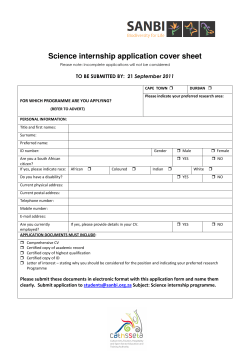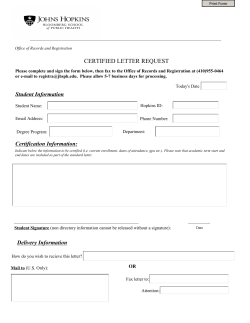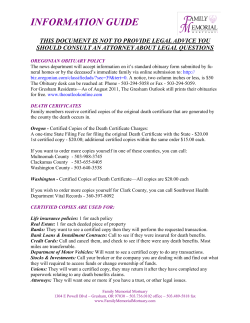
HOW TO ASSESS YOUR COMPANY’S FINANCIAL HEALTH
HOW TO ASSESS YOUR COMPANY’S FINANCIAL HEALTH By Leah Szlatenyi, CPA/ABV, CVA, MSPFP, MST We obtain health checkups to monitor, maintain and improve our health. But did you know you should do the same for your company? Financial statements provide the vital statistics necessary to track a company’s health. Investors use financial statements to research potential investments; bankers base lending decisions on a company’s financial statements; and valuation experts utilize financial statements to determine a company’s worth. By routinely scrutinizing your financial statements, you can monitor and improve your company’s performance and its ultimate value. A comprehensive financial analysis employs ratios to measure a company’s past and current operations and compares the results to its industry. This type of review offers insight into the historical growth, profitability, debt capacity, and overall liquidity of the subject company in the context of its industry. All such factors can be important indicators of a company’s ultimate value and provide useful information to business owners and managers who want to more effectively and efficiently manage their operations. You can perform your own financial checkup for your business. To begin, obtain a history of your company’s financial statements. Five years worth is usually a good base. Next, convert the financial statements to common size. Common size financial statements are simply your company’s financials expressed in the form of percentages rather than dollars. A common size format readily identifies trends and growth patterns. Additionally, since industry benchmark data is often produced in this format, it makes it easier to compare your results with the competition. Industry benchmark information can be obtained from a commercial vendor, your accountant, or depending upon the industry, from trade associations. Next, financial ratios are calculated. There are a number of ratios to choose from. Some of the more common measure liquidity, debt coverage, leverage, and operating and profit performance. Their relevance is dependent upon your company, its operating characteristics and the industry. Bankers and accountants can be especially useful in identifying the more pertinent ratios. The information gathered thus far is analyzed and compiled on a trended, composite and industry basis. The results of this analysis, when performed regularly, help you to monitor and recognize the vital statistics necessary for the success and growth of your business. The benefits of this assessment include: Competitive Advantages & Disadvantages An industry assessment enables you to identify your company’s strengths and weaknesses and acquire valuable information on the competition. Budgeting & Forecasting Studying trends and growth patterns is a very effective preliminary step in preparing internal budgets and forecasts. Strategic Planning Recognizing specific performance measurements (company and industry) will help to set goals and objectives for the future (e.g., increasing sales, gross profit margins, and net income). Acquisition Opportunities Knowledge of key performance measurements assists in the evaluation of a proposed sale, merger or acquisition. Focus Greater awareness of the interrelationship of the financial statements and a complete understanding of financial operations allows you to focus on the areas important to the growth and success of your business. Regardless of whether you prepare or your accountant prepares, a financial analysis is akin to your annual physical…it is crucial to understanding your company’s health—past, present and future. By: Leah J. Szlatenyi, CPA/ABV, CVA, MSPFP, MST Ms. Szlatenyi is a Director of Bentley Consulting Group, LLC. She concentrates in the areas of business valuation, litigation support, cost segregation studies and R&D tax credit studies. Her experience includes the manufacturing, fabrication, real estate, property management, educational, retail and professional services industries. Leah is a Certified Public Accountant (CPA), Certified Valuation Analyst (CVA), member of the American Institute of Certified Public Accountants, the Rhode Island Society of Certified Public Accountants, National Association of Certified Valuation Analysts, Business Valuation Committee of the Rhode Island Society of Certified Public Accountants and Finance Committee of Leadership Rhode Island. She can be reached at leah@BentleyCG.com
© Copyright 2025





















